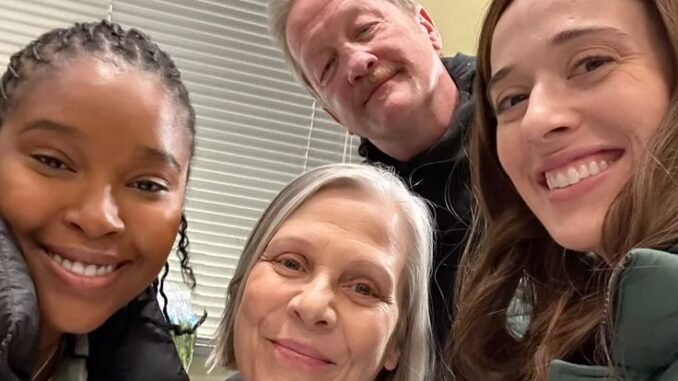
Amy Morton’s roots in the theater are deep and meaningful. She joined Steppenwolf in the 1990s, during a period of explosive creativity and cultural relevance for the company. Known for its gritty realism and collaborative energy, Steppenwolf has long been a breeding ground for actors who go on to dominate stage and screen—Gary Sinise, John Malkovich, Laurie Metcalf, and Jeff Perry, to name a few.
Morton doesn’t see herself as a gatekeeper, but rather as a guide. She believes in creating space for young people to take risks, but insists that mentorship must come with tough love and honest feedback. “You don’t serve anybody by being polite all the time,” she notes. “You tell the truth—kindly, clearly—but you tell the truth.” This philosophy is rooted in her own early years as an actor, when she was the one soaking up lessons from veterans at Steppenwolf. Now, as the mentor, she finds joy in helping others find their footing in a rapidly changing industry that often values speed over substance.
Despite her impressive résumé, Morton is remarkably humble about her success. “So much of this career is luck,” she admits. “I worked hard—of course—but I was also in the right place at the right time. And that’s something we don’t say enough in this business.” She doesn’t downplay her efforts, but she’s keenly aware of the random nature of opportunity in the arts. “There are so many great actors who never get seen. That’s the heartbreaking part. You have to be good—but you also have to get lucky.”
One area where Morton doesn’t mince words is professional behavior. She has little patience for what she sees as a rising lack of etiquette in both theater and television. “People think being difficult makes them seem deep. It doesn’t. It just makes the work harder for everyone.” She recounts stories of actors glued to their phones during rehearsals, of egos outpacing ability, and of a general disregard for the collaborative nature of storytelling. “Acting is not about being a star. It’s about showing up, knowing your lines, hitting your mark, and being present. That’s it. That’s the job.” Morton believes that professionalism is often mistaken for coldness, but to her, it’s the opposite—it’s respect. “When you’re on time, prepared, and listening, that tells everyone you value their time. That’s love in this business.”

Part of Morton’s frustration with modern etiquette stems from her upbringing in a space like Steppenwolf, where ensemble is sacred and self-importance is checked at the door. At Steppenwolf, actors build stories together, and every voice counts—whether you’re a veteran or making your debut. That culture has become a benchmark for how Morton approaches every role, whether she’s on a Broadway stage or a network drama set. “Steppenwolf ruined me in the best way,” she laughs. “It taught me that no matter where you go, the work matters more than the noise.
While Morton has remained loyal to the theater, her role as Sergeant Trudy Platt on NBC’s Chicago P.D. has introduced her to a global audience. What began as a recurring role quickly grew into a fan-favorite character, thanks to her dry wit, moral compass, and sharp delivery. For Morton, the transition from stage to screen was smooth, but not without its adjustments. “In TV, you learn to trust the smallest moments,” she says. “The camera picks up everything. But the honesty—that’s the same, no matter the medium.” Even on a network procedural, Morton brings her Steppenwolf mindset: respect the material, listen to your scene partner, and leave your ego at the door.
Amy Morton is the kind of artist who doesn’t chase fame but earns admiration. Her decades of work speak for themselves, but it’s her behind-the-scenes wisdom that truly defines her legacy. She champions discipline, respect, and sincerity—values that too often get lost in the whirlwind of celebrity culture. Whether she’s mentoring a young actor, commanding a Broadway stage, or holding down the precinct desk on Chicago P.D., Morton approaches her work with the same philosophy: show up, do the work, tell the truth. And in a world full of shortcuts and spectacle, that kind of consistency is not just rare—it’s revolutionary. As she continues to guide the next generation, Amy Morton remains a quiet force—one whose voice, integrity, and presence remind us what great acting is really about: not standing out, but standing together.
